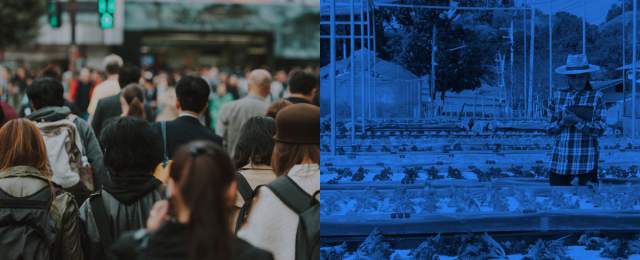With greater influence comes greater responsibility

Looking back, 2020 should have kick-started a decade of action on the Sustainable Development Goals. Instead, it was derailed by COVID-19. During this unprecedented crisis, the world lost 495 million jobs, saw an estimated 124 million people slip back into extreme poverty and a potential 137 million people or more into acute food insecurity. As deep-rooted flaws in our system have been fully laid bare, the crisis is delivering the final blow to an economic model that is no longer sustainable – environmentally or socially.
Against this backdrop, it is hard to remain optimistic about achieving the UN Sustainable Development Goals (SDGs). However, some cautious optimism is justified. With the Biden-Harris administration taking office, multilateralism receives its biggest boost since the adoption of the SDGs and Paris Agreement in 2015. Those who have followed international climate action over the past few months have seen leading nations strengthening their climate commitments, while the number of companies setting new NetZero targets tripled.
We are still in the midst of a global pandemic, but business leaders see where the wind of change is blowing and speak out more committed than ever. But commitments alone will not save lives, curb emissions or pay for living wages. 2021 needs to be the year where commitments lead to the change needed to achieve the SDGs.
The companies shaping our future
Companies have a critical role to play to create a green and just recovery. Not only as an engine of economic growth and employment, but also as a source of finance, technology, and innovation. Companies are therefore well placed to drive the systemic transformations needed to achieve an inclusive, low-carbon economy.
Companies now need to prioritize and manage their impact on society and our planet and vice versa. This is especially true for multinational companies, which have a huge impact on society and our planet – both at an aggregate and individual level. Their influence is so large that it is widely acknowledged that global agendas like the SDGs and the Paris Agreement on climate change cannot be achieved by governments alone. In this context, the World Benchmarking Alliance identified the 2,000 most influential global companies. You can find the updated list here.
The global crisis does not leave any of these 2000 companies unaffected, but as we emerge from it, we expect many of them to have reinforced and grown their global influence. And with growing influence comes a greater responsibility.
These are the companies that are going to shape our future. But with this great influence comes great responsibility. Many companies feel this responsibility but acting accordingly is tough in a hyper-competitive global market – without laggards being held accountable nor leaders being recognized for the investments they need to take and contribution they must make to society they deliver.
Our commitment
The impact of last year was clear and resounding, although it would not be fair to put all blame on the last twelve months. The lack of results at the five-year mark of the Paris Agreement and the UN SDGs made that distinctively clear. This crisis did however reinforce more than ever before why the Paris Agreement and the SDGs are the global agenda the world needs.
2021 will in many ways be a crucial year, with the 26th U.N. Climate Change Conference in November, the first ever UN Food System Summit and the 10-year anniversary of the UN Guiding Principles for Business and Human Rights among the key milestones. Throughout this pivotal time, we will further our commitment to chart a clear course for business, guided by the SDGs, towards a resilient and sustainable future.
On Thursday, we shared our Financial scoping report, laying out how we intend to identify the actions that financial institutions can take to improve their impact on people, workers communities and the environment. We published our Social transformation framework yesterday, soon to be followed by our Just Transition report, setting out how we will assess the world’s most influential companies on what they’re doing to ensure we leave no one behind as we reimagine our economic and social system. Next week our COVID-19 study will also go live, delving into how the 230 companies included in Corporate Human Rights Benchmark responded to human rights issues arising from the global pandemic.
None of this could have been done in any meaningful way without our ever-dedicated team, as well as our growing alliance and partners with whom we look forward to continuing to work as we emerge from this crisis. Together we will further our ambition to build a movement to measure and incentivise business impact towards a sustainable future that works for everyone.